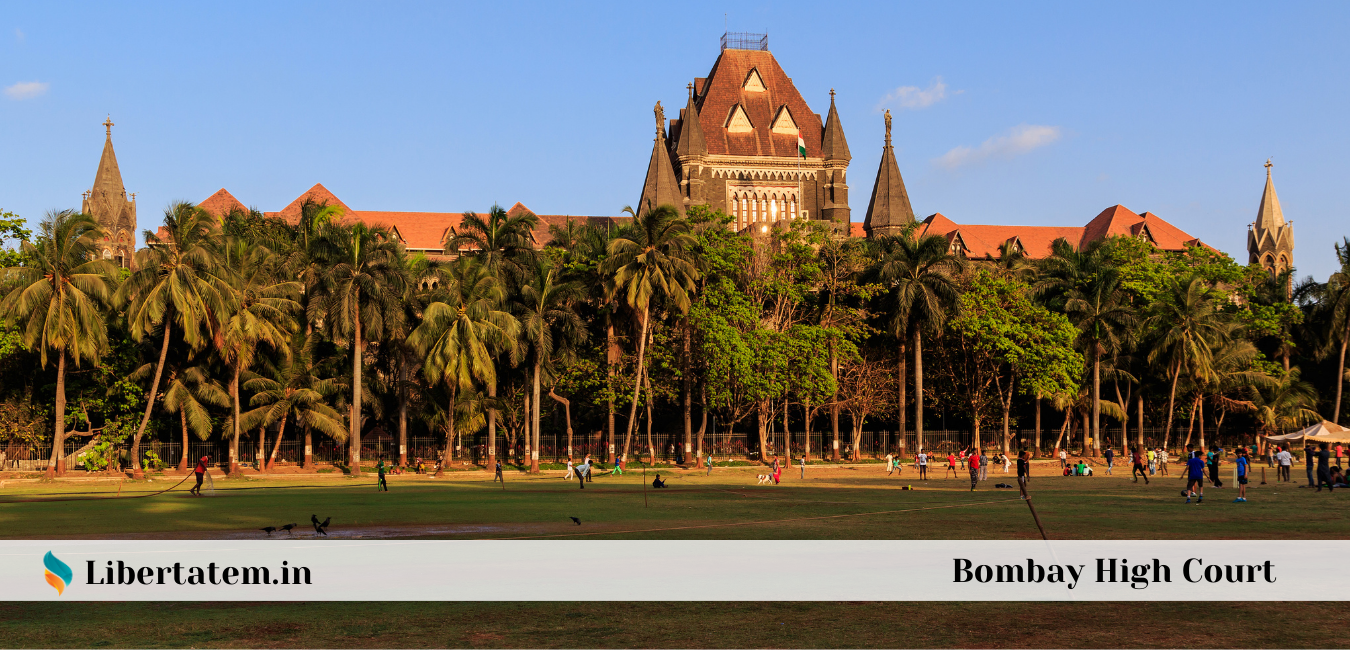The Bombay High Court on Thursday refused to quash an FIR issued against a couple accused of trafficking a 10-year-old girl, even though the victim’s family and the accused had reached an amicable settlement.

Facts of the Case
The petitioners, Rishi Prabha Prasad and her husband Ranjitkumar Prasad, had been booked under Sections 370 (trafficking of persons) of the Indian Penal Code and Sections 75 (punishment for child cruelty) and 79 (exploitation of child employee) of the Juvenile Justice (Care and Protection of Children) (JJ) Act, in the case of Rishi Prabha Ranjitkumar Prasad v. the State of Maharashtra.
The complainant, in this case, an employee at the housing society where the petitioners lived, learned from the minor that she was doing menial housework and caring for the petitioner’s daughter through his chats with her.
After the youngster informed him that she was reportedly thrashed by the petitioners for forgetting the house keys inside the house, he filed a report with the Chembur police station.
Rajkumar Prasad, who was aggrieved by the FIR, applied in 2018 to have it quashed, but the Court denied his request.
Following that, the Chembur police filed a charge sheet in the Sessions Court. Both the husband and wife filed separate petitions in this case.
Arguments before the Court
The couple’s lawyer, Vishal Kanade, maintained that the complainant’s account was based on hearsay and hence there was no basis for bringing a charge sheet.
He also mentioned the complainant’s affidavit, in which he expressed his desire to drop the case after meeting the underage girl’s parents and realizing the complaint was based on a misunderstanding.
The minor’s parents also filed an affidavit indicating that they worked as agricultural laborers on Ranjitkumar Prasad’s brother’s property and had a long-standing relationship with the petitioners.
They freely consented to move their daughter to the petitioners’ household for her well-being and welfare because they were unable to support their complete family, which included their four other children.
Deepak Thakare, the Chief Public Prosecutor, vigorously opposed the petition, claiming that the petitioners’ crimes were significant and had a negative influence on society.
Observations by the Court
After carefully perusing the pleadings before it, the Court placed specific reliance upon the statements of the minor recorded in 2018 stating that she was doing menial work in the petitioners’ house and would get beaten up occasionally if she committed mistakes.
She had also stated that “she wants to go to her parents and she is not willing to continue her stay with the petitioners”.
The Court noted that the statements of the victim cannot be ignored especially when her statement was substantiated by more than 10 witnesses and CCTV footage evidence.
The statements of the victim, as also the statements of witnesses and other incriminating material would be sufficient to proceed with the trial, the Court added.
The court also noted prima facie that the financial instability of the minor’s parents may have compelled them to send their daughter with the petitioners to Delhi.
Having said so the Court observed that “merely because parents of victim and complainant have filed the affidavits thereby joining the prayer of petitioners for quashing the impugned FIR based on amicable settlement, the FIR and charge sheet cannot be quashed”.
Court’s Orders
The court held that the criminal proceedings against the petitioners could not be quashed as the case stood on a different footing in comparison to routine criminal cases “predominantly having the civil flavor and which are personal in nature”.
The court held:
“Heinous and serious offenses involving mental depravity or offenses such as murder, rape, and dacoity cannot appropriately be quashed though the victim or the family of the victim have settled the dispute. Such offenses are truly speaking, not private but have a serious impact upon society. The decision to continue with the trial in such cases is founded on the overriding element of public interest in punishing persons for serious offenses.”
Click here to read the judgment
Libertatem.in is now on Telegram. Follow us for regular legal updates and judgment from courts. Follow us on Google News, Instagram, LinkedIn, Facebook & Twitter. You can subscribe to our Weekly Email Updates. You can also contribute stories like this and help us spread awareness for a better society. Submit Your Post Now.

